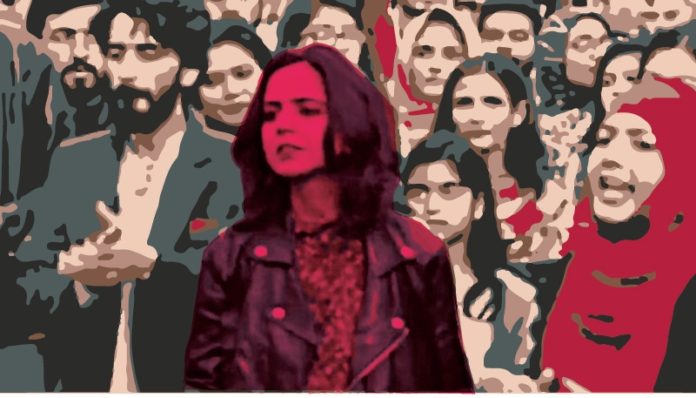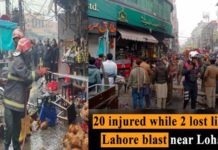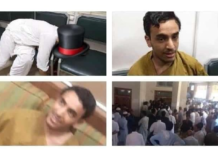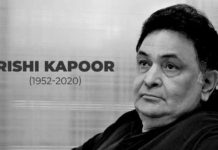Any student who applies to be admitted to a prestigious university, school or college in the country has to submit an affidavit to the institution’s administration, declaring that he/she will not partake in any political activity on the campus and shall not form student union.
This affidavit, also known among students as the ‘non-political’ affidavit, has the student swearing on oath that he or she would not take part in any political activity on campus and will only use the premises to study.
The undertaking doesn’t end here.
Parents or caretakers are also required to also sign the same affidavit, turning it into a joint declaration that in case the student gets involved in any political activity, he/she may be “immediately expelled”. 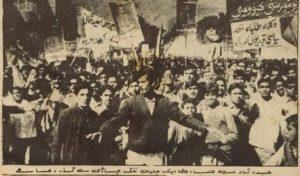
This undertaking is usually in the form of an affidavit though in some cases it constitutes a small section of the admission form itself. So while some institutes of higher learning require the undertaking after the student secures admission, others ask for it beforehand by making the declaration part of the form and as a result turning it a requirement for securing admission.
Typically, the student makes two undertakings. One that he/she will not indulge in politics or in any unlawful activity and that he/she will maintain discipline and strictly adhere to the said university’s rules and regulations.
Additionally, students are also required to state that in case they violate the undertaking, they “may be expelled from the university”.
In some cases, the student is required to sign the affidavit in the presence of witnesses. For example, some universities require students to sign the declaration with two government officers of Grade-17 or above as witnesses. These witnesses are also then required to verify the declaration with their signature and official stamp.Bahria University’s Administrative Negligence Swallows a Precious Life
Aside from the student’s declaration and signature, the affidavit has a second part that contains an undertaking signed by one of the parents or guardians who swear himself/herself responsible for ensuring that the student will not violate the contents of the affidavit.
The practice of swearing to remain apolitical dates back to the era of General Zia ul Haq’s military regime. It was January 30, 1984, when the dictator imposed a ban on student unions across the country.
At first, the ban was imposed in Islamabad due to the regime’s apparent fear that students in the federal capital may gear up against military rule. 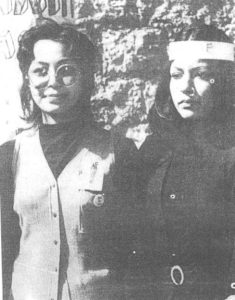
By February, this ban was extended to the Punjab and then to Khyber Pakhtunkhwa (the area then known as the North Western Frontier Province as well as the Federally Administered Tribal Areas).
However, in Sindh, a ban was placed on student unions much earlier in 1979.This was the time when automatic weapons first surfaced in the Pakistan, unfortunately also on university campuses in Karachi and Lahore.
Islami Jamiat-i-Talaba, a student wing of the right-wing Jamaat-i-Islami, gets the bulk of the blame for introducing automatic weapons on campuses of the University of Karachi and University of the Punjab, thus showing what was then a new, violent face of student bodies. Student wings of other political parties caught on and clashes between them led to casualties.
Therefore, the impression needs correcting is that the culture of violence that entered campuses was not on account of student unions, whose activities and elections were largely peaceful. Most of the violence took place in the post-ban period and those involved were members of student wings of political parties.
Zia regime deliberately introduced the element of violence in student unions in order to create the impression that these bodies were involved in activities detrimental to state and society.
It was also an attempt to counter the rising Pakistan Peoples Party of Zulfiqar Ali Bhutto since its Peoples Students Federation had almost swept clean student union elections in Sindh’s major educational institutes.
Once the unions were banned, the Zia regime proposed that student councils and societies could be set up in higher education institutions. However, direct polling to elect student leaders of these councils and societies was not favoured and it was further proposed that Vice-Chancellors and Principals would head these bodies.
Later on, with Benazir Bhutto coming to power, the ban on student unions was briefly lifted in 1989. The lifting of the ban was challenged in 1990. The first ban on student unions in the Indian subcontinent was imposed in 1929 following the Hindu-Muslim riots, but these bodies were later restored in 1958.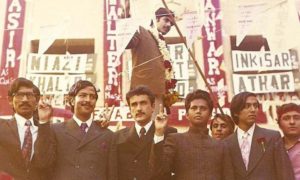
Then, in 1962, Pakistan saw a ban on direct elections of trade and student unions during the Ayub era.
Later on, the ban was reluctantly lifted by Yahya Khan as one of the oppositions demands he accepted in order to give his regime a lifeline.
Why are student unions necessary & should be restored
Incidents such the alleged blackmail of students at BU, the lynching of Mashal Khan, a student of the Bacha Khan University in Mardan, on campus premises over false blasphemy allegations, the detention and manhandling of now prime minister Imran Khan by IJT activists at the PU campus in the days of Musharraf’s 2007 emergency are some of the incidents that offer a glaring reminder that unions which empower students and inculcate in them a sense of tackling difference of opinion peacefully are imperative.
In my opinion, such incidents are the outcome of the absence of student unions…the culture of holding debates and discussions has ended and so has the culture of political training and democratic norms, these were what promoted the idea of tolerance among students.
Furthermore, student unions play a pivotal role in training the country’s youth not only in politics but also in understanding what their rights and responsibilities are as conscientious members of a society.


